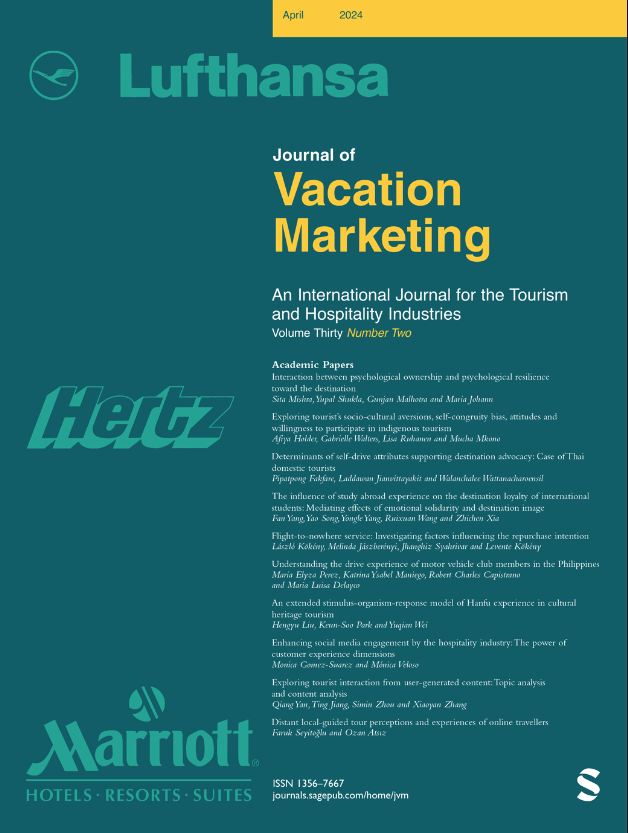酒店客房特征分析中自变量的选择
IF 5
3区 管理学
Q1 BUSINESS
引用次数: 1
摘要
自20世纪90年代初以来,享乐定价方法一直被应用于酒店房价分析,并从此成为研究酒店房价决定因素的规范。具体文献中的一个常见问题是,在选择特征定价模型中的解释变量时没有理论指导。因此,从事此类研究的学者面临着一个挑战,即他们应该在自己的分析中包括文献中提出的众多价格决定因素中的哪一个,多重共线性的风险使问题更加复杂。本文提出了一种策略,通过将逐步回归技术与候选回归因子的适当分类相结合,既面临变量选择问题,又面临潜在的多重共线性。该程序用于分析塞浦路斯酒店住宿价格的决定因素,该国经济高度依赖旅游业,连续12个月,以解释固有的季节性。主要研究结果表明,在酒店的广告中添加一些属性会显著增加酒店经营者的报酬,但广告中的某些其他功能实际上可能会发出负面信号,因此酒店经营者应考虑将其排除在宣传册之外。本文章由计算机程序翻译,如有差异,请以英文原文为准。
Selecting independent variables in the hedonic analysis of hotel rooms
The hedonic pricing method has been applied in the analysis of hotel room rates since the early 1990s and ever since has become the norm in the investigation of hotel room price determinants. A usual problem in the specific literature is that there are no theoretical guidelines in selecting the explanatory variables in hedonic pricing models. Therefore, scholars employed in such kind of research face the challenge of which of the numerous price determinants proposed in the literature should they include in their own analysis, with the hazard of multicollinearity complicating the issue even further. The current article proposes a strategy where both the variable selection problem and the potential multicollinearity are faced by utilizing a combination of stepwise regression techniques with a proper categorization of the candidate regressors. This procedure is used in analysing the determining factors of the hotel accommodation prices in Cyprus, a country whose economy is highly dependent on tourism, for 12 consecutive months, in order to account for the inherent seasonality. The main findings suggest that adding some attributes to the advertisements of the hotels significantly increase hoteliers’ remunerations, but advertising certain other features may be actually sending negative signals, therefore hoteliers should consider excluding them from their brochures.
求助全文
通过发布文献求助,成功后即可免费获取论文全文。
去求助
来源期刊

Journal of Vacation Marketing
Multiple-
CiteScore
9.70
自引率
15.70%
发文量
54
期刊介绍:
Journal of Vacation Marketing is a fully peer reviewed international journal that publishes original research and review articles on topics relating to the marketing of destinations and businesses/organisations involved in the wider tourism, hospitality and events industries. Its objective is to provide a forum for the publication of refereed academic papers and reviewed practitioner papers which are of direct relevance to industry, while meeting the highest standards of intellectual rigour.
 求助内容:
求助内容: 应助结果提醒方式:
应助结果提醒方式:


